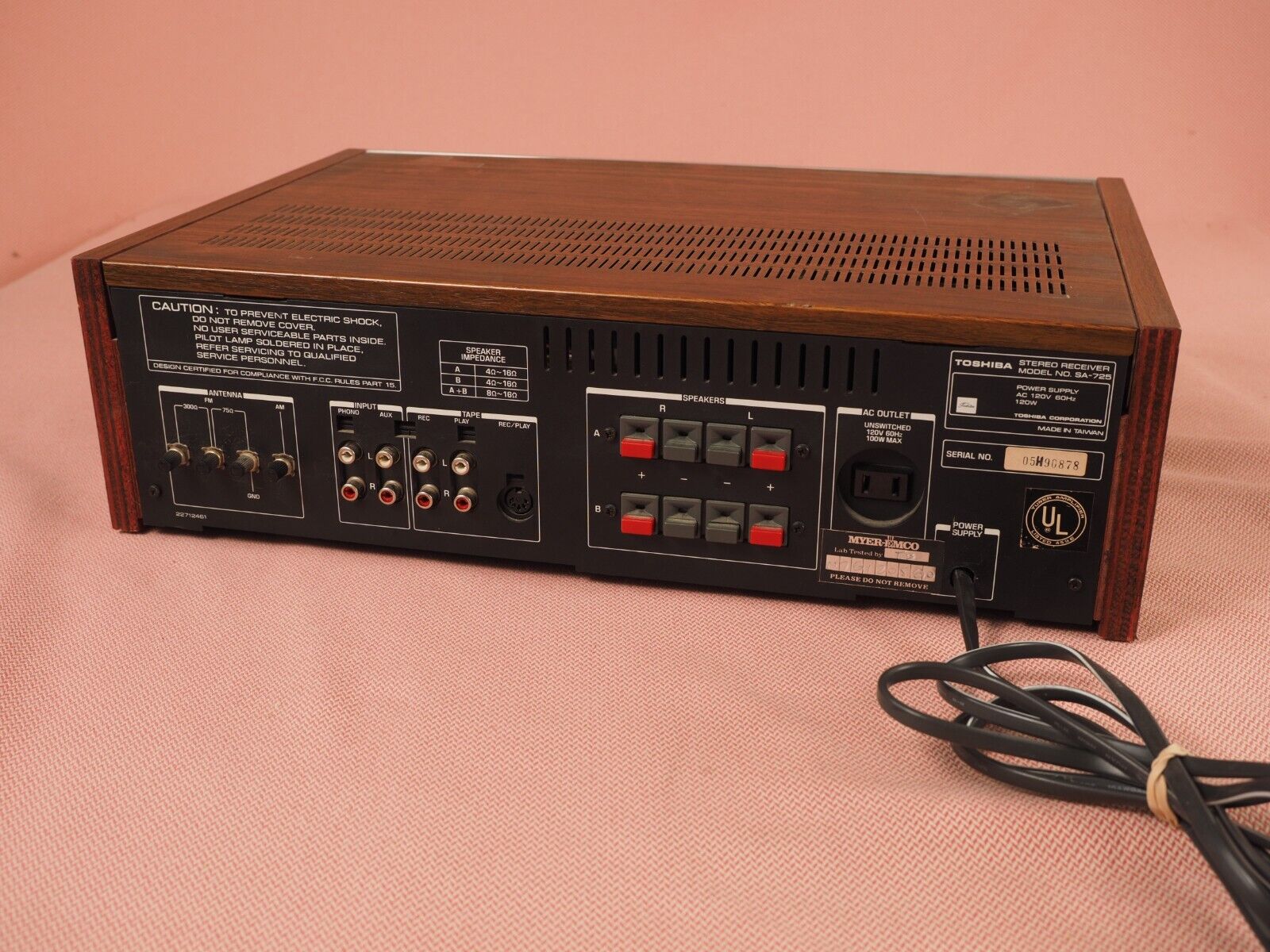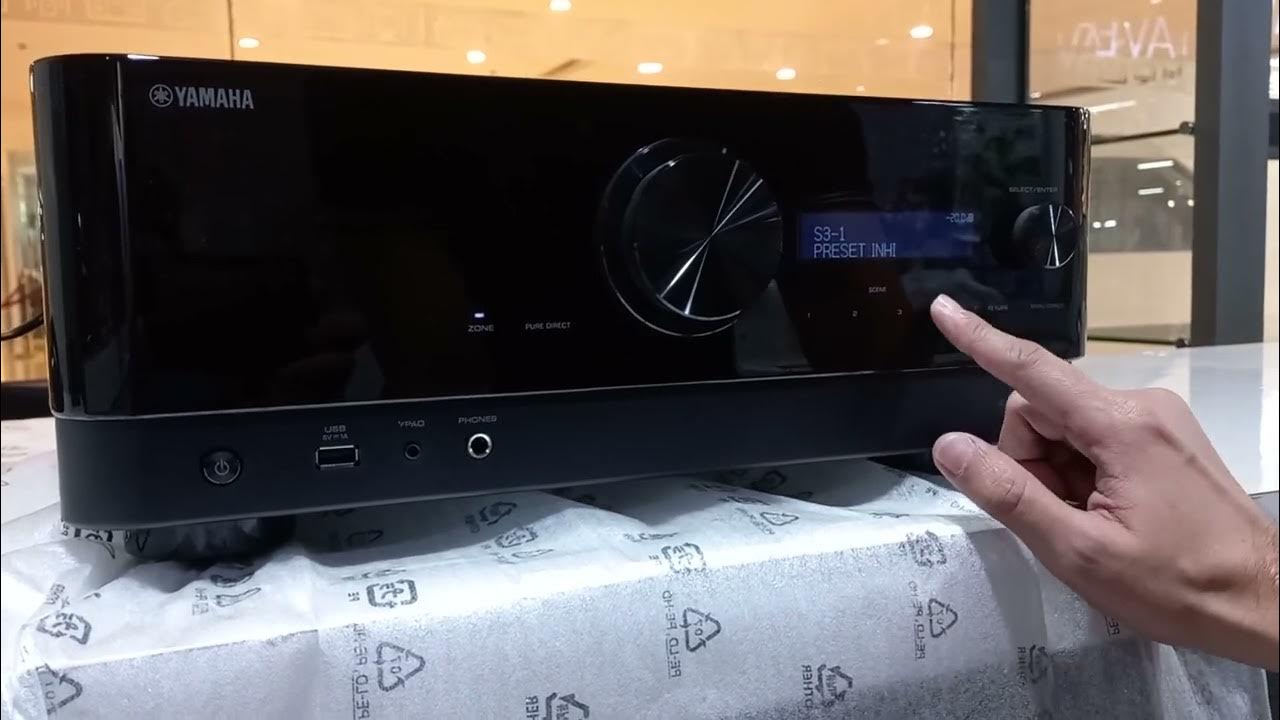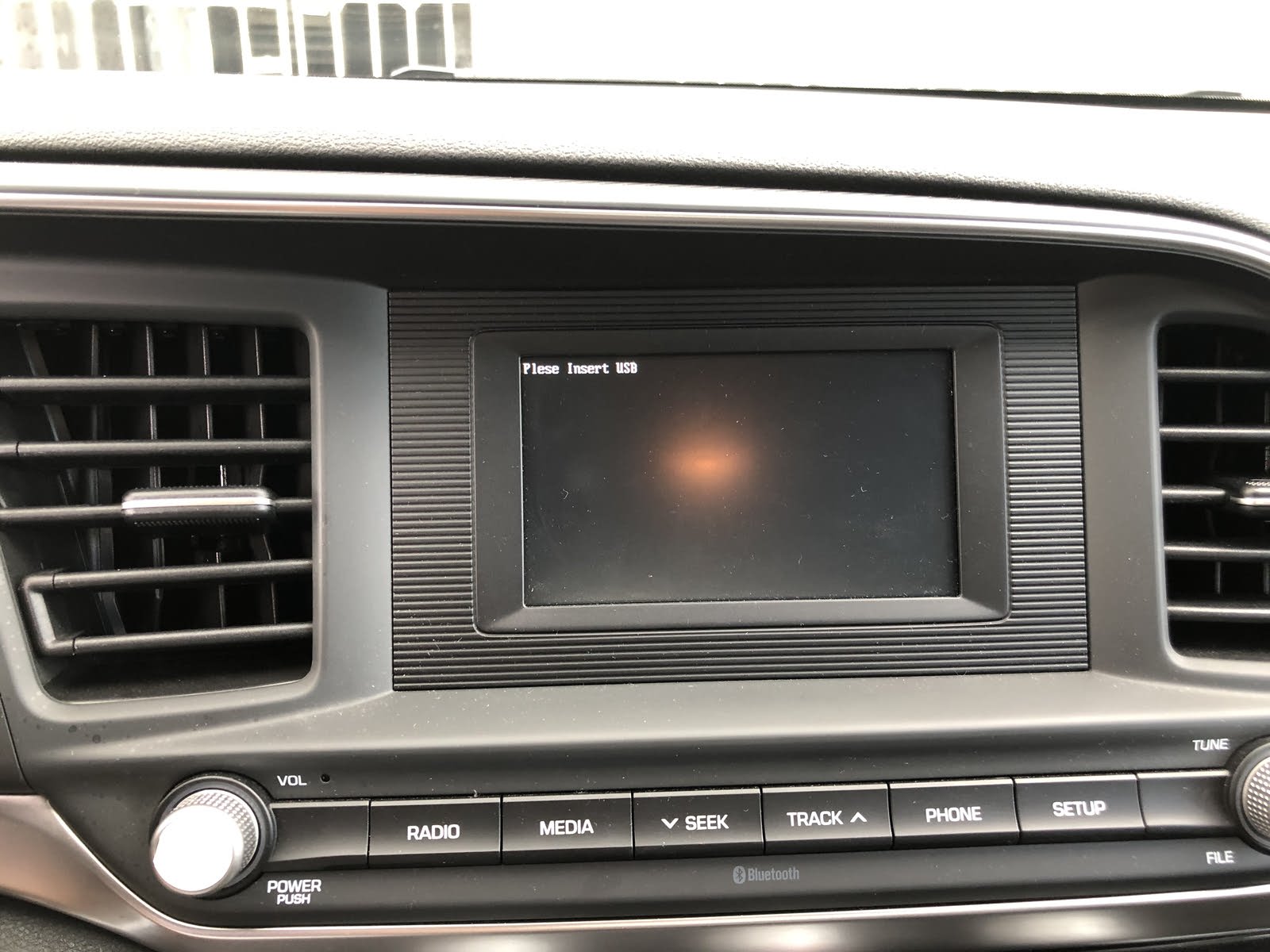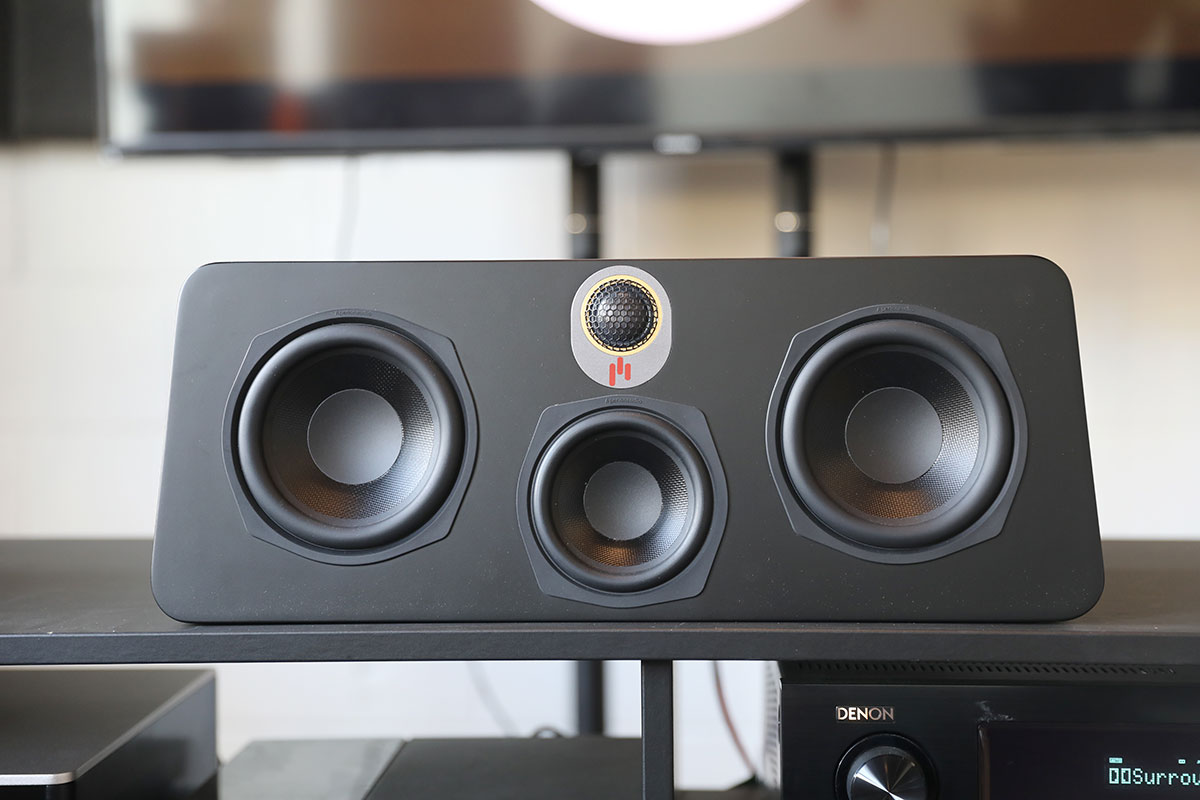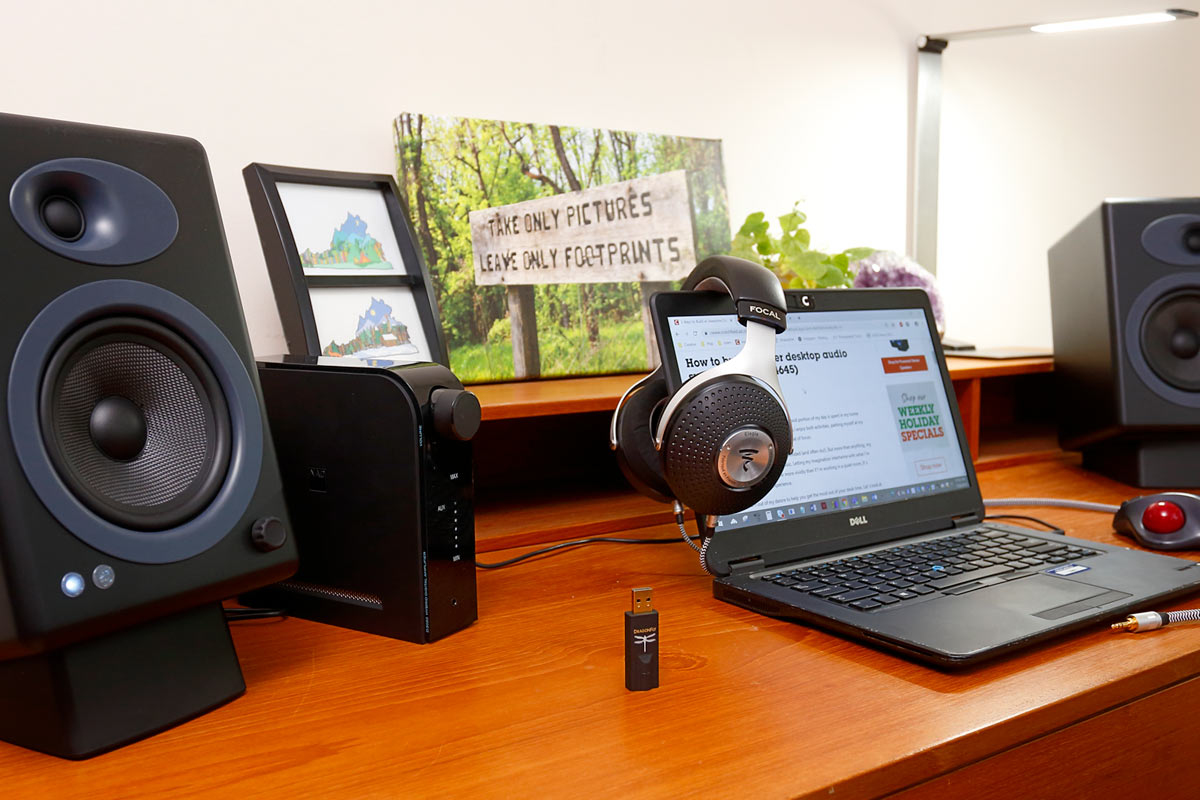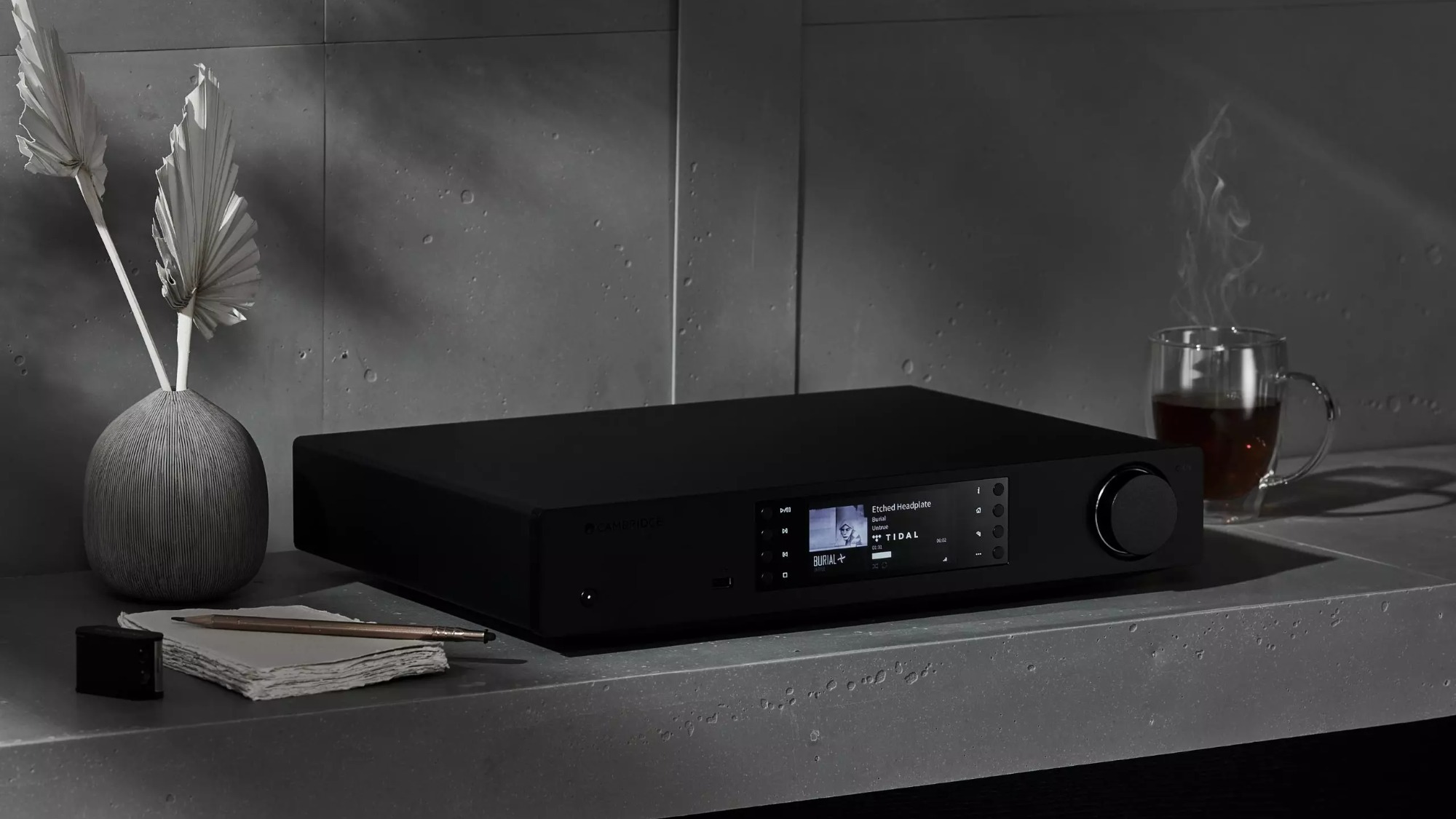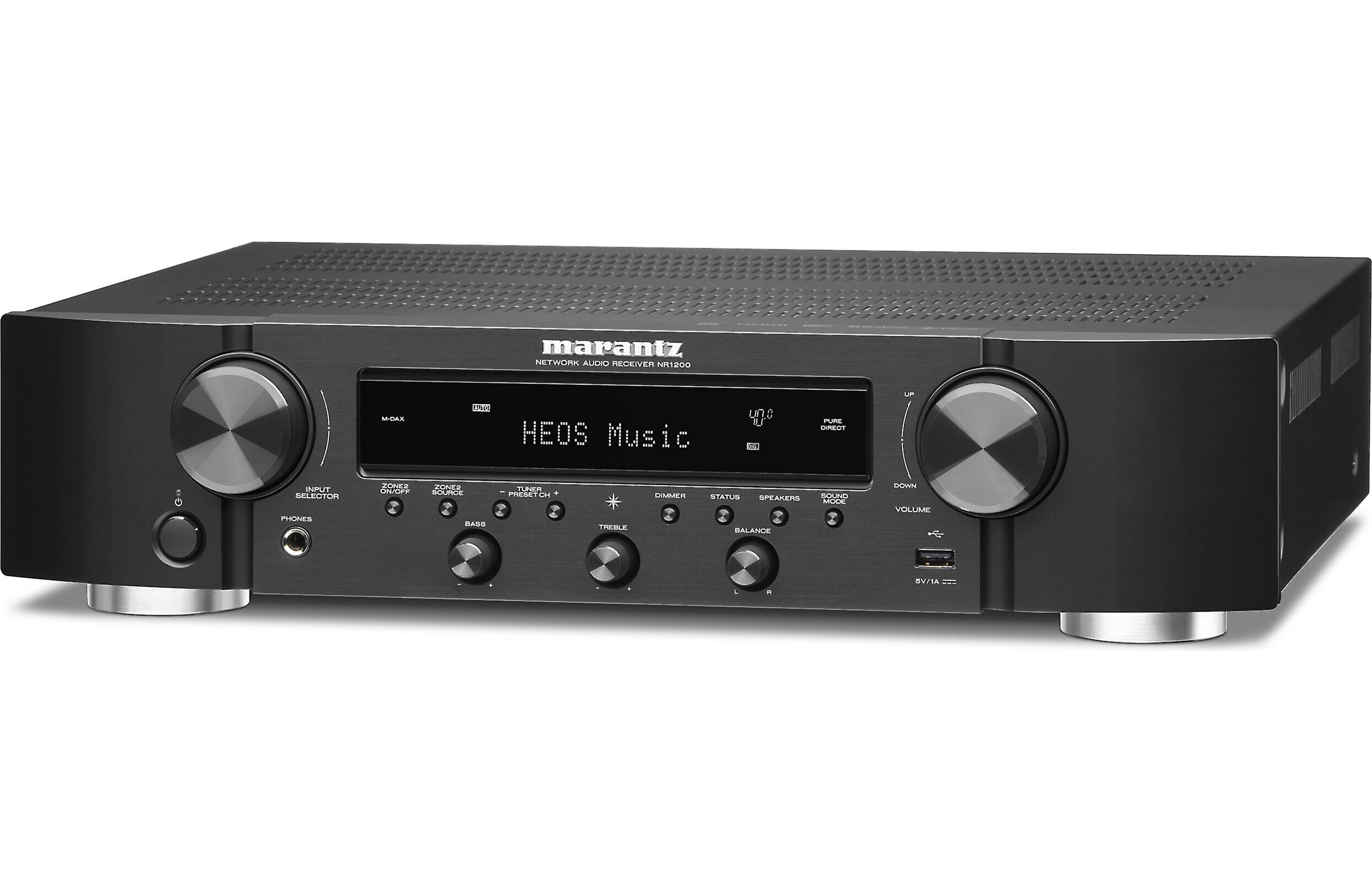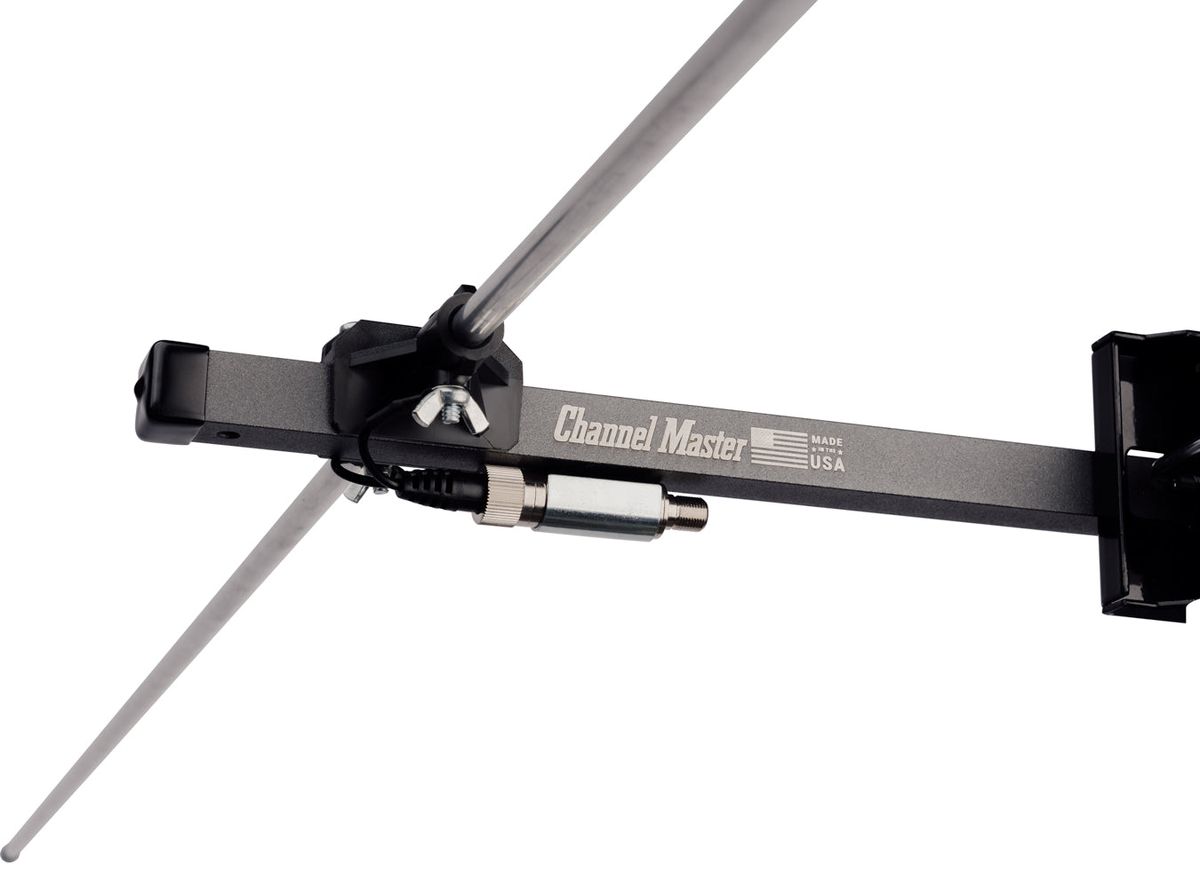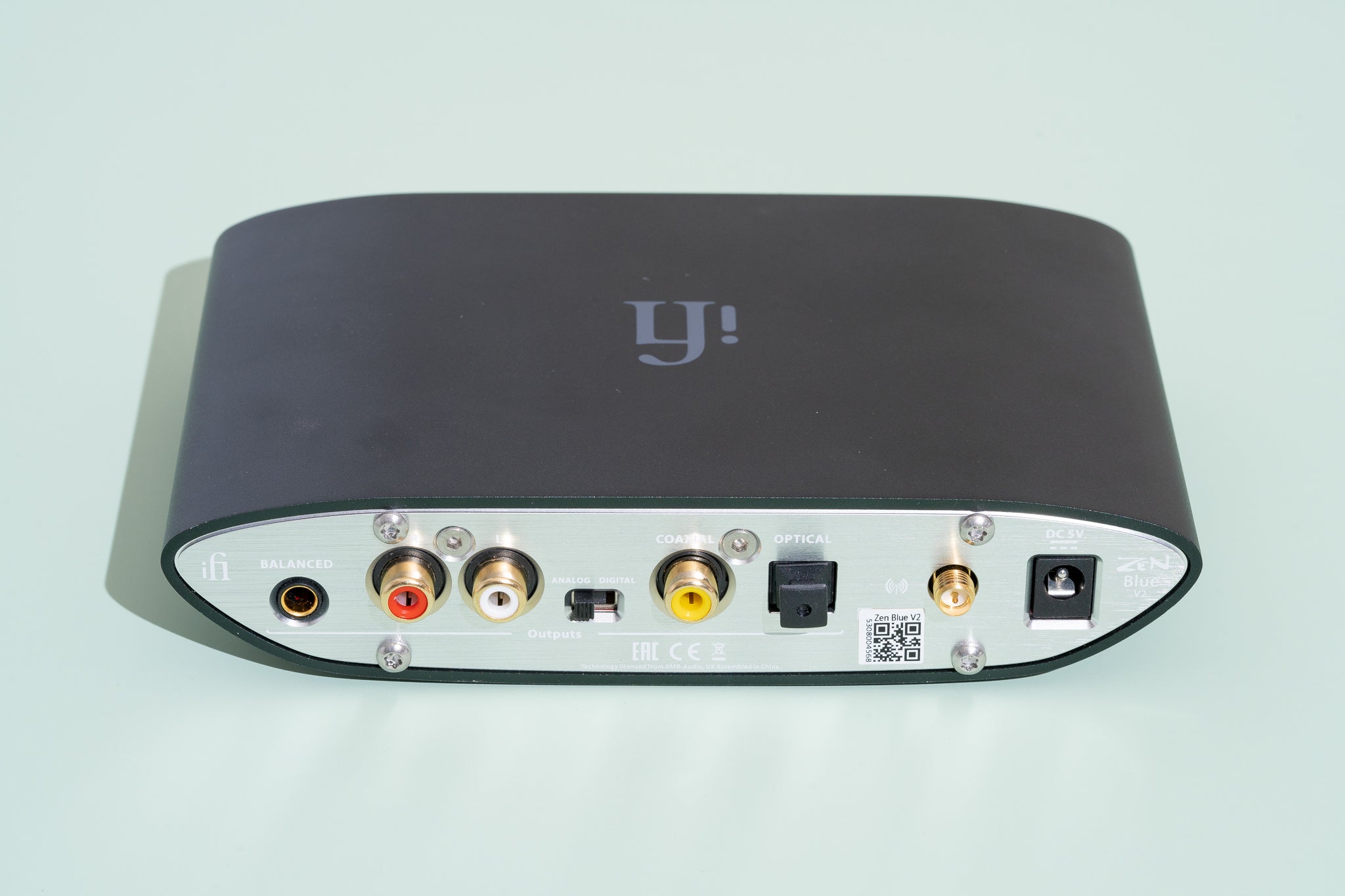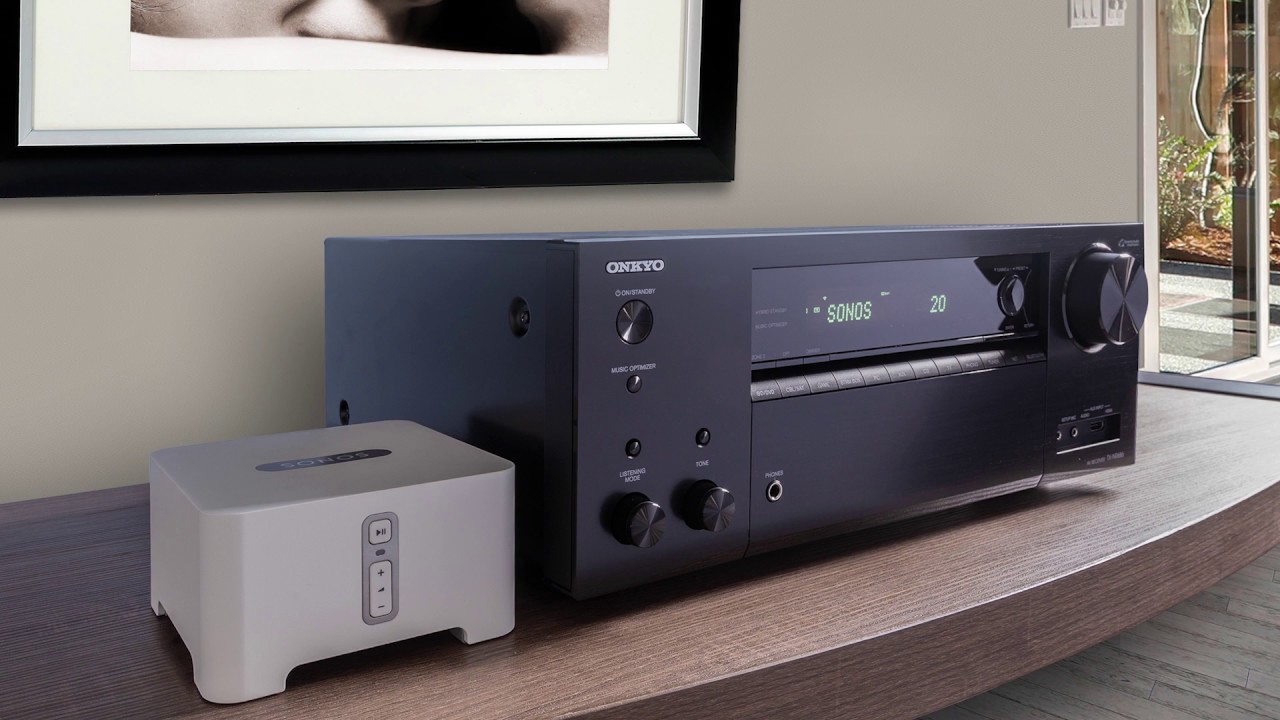Home>Production & Technology>Stereo>Why Is My Stereo Receiver Buzzing
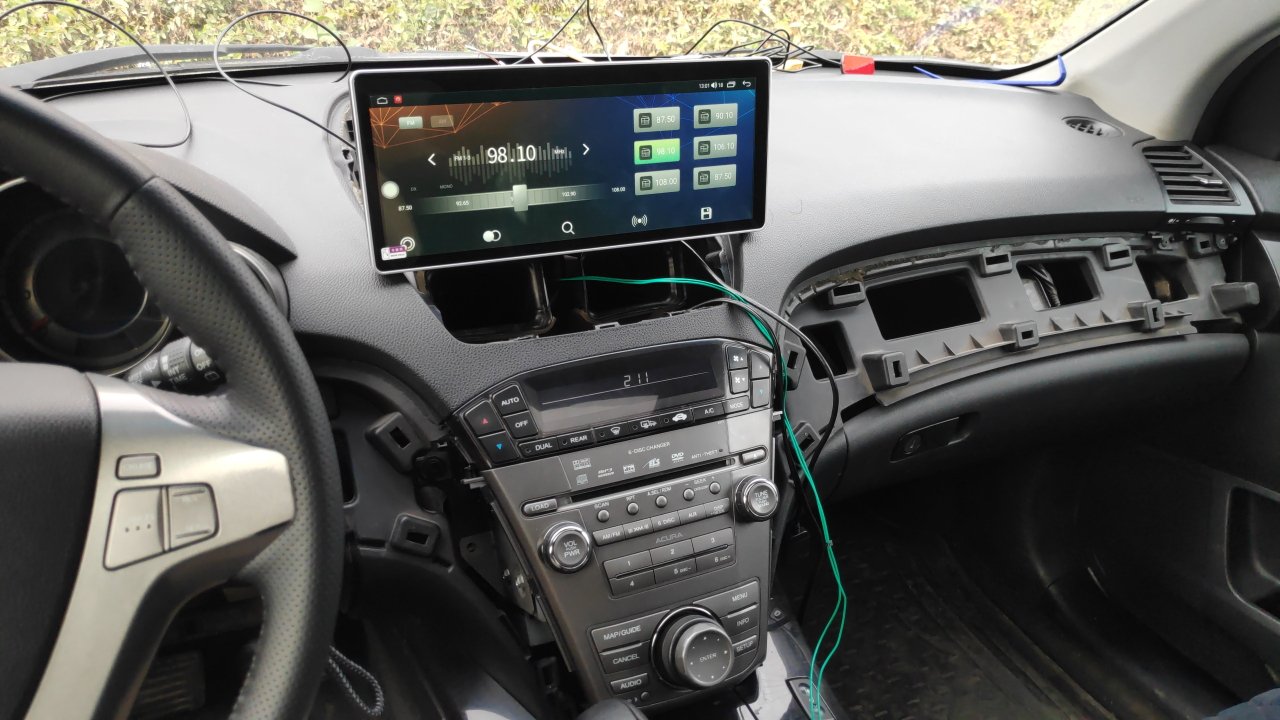

Stereo
Why Is My Stereo Receiver Buzzing
Modified: January 22, 2024
Discover why your stereo receiver is buzzing and how to fix it. Don't let buzzing ruin your listening experience. Get rid of the noise with our helpful tips.
(Many of the links in this article redirect to a specific reviewed product. Your purchase of these products through affiliate links helps to generate commission for AudioLover.com, at no extra cost. Learn more)
Table of Contents
Introduction
A buzzing sound coming from your stereo receiver can be frustrating and disruptive to your listening experience. It can diminish the quality of your audio and ruin the ambiance of your favorite songs or movies. Understanding the causes of this buzzing noise can help you identify and rectify the issue, restoring the crisp and clear sound that you desire.
There can be several reasons why your stereo receiver is buzzing. It could be related to faulty power sources, grounding issues, interference from nearby electronics, damaged audio cables, or issues with your speakers. By identifying the root cause of the buzzing, you can take the necessary steps to fix the problem and enjoy your audio system to the fullest.
In this article, we will explore some common causes of buzzing in stereo receivers and provide troubleshooting solutions to help resolve these issues. Whether you are an audio enthusiast or someone who simply enjoys good sound quality, this guide will assist you in troubleshooting and resolving buzzing problems in your stereo receiver.
Common Causes of Buzzing in Stereo Receivers
There are several common causes for buzzing in stereo receivers. Understanding these causes will help you identify and address the issue effectively.
- Faulty Power Source or Power Cords: One of the primary causes of buzzing in stereo receivers is a faulty power source. If the power outlet is not providing a stable and clean power supply, it can result in buzzing or humming sounds. Similarly, damaged or poorly insulated power cords can introduce interference into the audio signal, leading to the buzzing noise.
- Grounding Issues: Improper grounding can cause electrical interference, resulting in a buzzing sound. If your stereo receiver is not properly grounded, it can pick up stray electrical signals and manifest as a buzzing noise.
- Interference from Nearby Electronics: Other electronic devices in close proximity to your stereo receiver can generate electromagnetic interference (EMI) that can interfere with the audio signal. Common culprits include Wi-Fi routers, cordless phones, microwave ovens, fluorescent lights, and even other audio equipment.
- Dirty or Damaged Audio Cables: It’s important to ensure that your audio cables are clean and in good condition. Dust, debris, or loose connections can introduce noise into the audio signal, resulting in a buzzing sound. Damaged cables, such as those with frayed or exposed wires, can also cause interference and buzzing.
- Speaker Problems: Faulty or damaged speakers can also be a source of buzzing in stereo receivers. Issues such as loose connections, damaged coils, or worn-out components can result in distorted or buzzing audio.
Understanding these common causes will help you narrow down the possible sources of buzzing in your stereo receiver. By systematically troubleshooting each potential cause, you can identify and resolve the issue, restoring the clarity and quality of your audio playback.
Faulty Power Source or Power Cords
A common cause of buzzing in stereo receivers is a faulty power source or power cords. A stable and clean power supply is crucial for smooth and uninterrupted audio playback. Here are some factors to consider:
Power Source: Ensure that the power outlet you are using is working properly and providing a stable power supply. Sometimes, old or low-quality power outlets can cause fluctuations in voltage, leading to buzzing or humming sounds in your stereo receiver. If you suspect that the power source is the issue, try plugging the receiver into a different outlet to see if the buzzing persists.
Power Cords: Examine the power cords connected to your stereo receiver. Make sure they are securely plugged in and not damaged. Check for any frayed or exposed wires, as they can introduce interference into the audio signal. If you notice any issues with the power cords, replace them with new ones to ensure a clean power supply.
In some cases, power cords can pick up electrical noise from other nearby devices or electromagnetic fields. To avoid this, consider using shielded power cords, which are designed to minimize interference. Additionally, keeping the power cords away from audio cables and other components can also help reduce the chances of buzzing.
It is worth noting that power conditioners or surge protectors can also help to mitigate power-related issues. These devices can regulate the voltage and filter out electrical noise, providing a cleaner power supply to your stereo receiver. Consider using a power conditioner if you live in an area with unstable power or if you frequently experience buzzing issues.
Overall, ensuring a stable and clean power source is essential for optimal audio performance. By addressing any issues with the power source or power cords, you can eliminate potential causes of buzzing in your stereo receiver and enjoy high-quality audio playback.
Grounding Issues
Grounding problems can contribute to buzzing in stereo receivers. Proper grounding ensures that any unwanted electrical signals or interference are properly discharged, preventing them from affecting the audio signal. Here’s what you need to know:
Ensure that your stereo receiver is properly grounded by checking the grounding wire connection. This wire is typically connected to a grounding screw on the receiver or to the chassis of the unit. If the grounding wire is loose, damaged, or not properly connected, it can result in buzzing or humming sounds.
Additionally, check the grounding of other audio components and devices in your setup. If one of these components is not properly grounded, it can introduce electrical noise into the system, leading to buzzing in your stereo receiver. Make sure that all components are appropriately grounded and connected to a common ground point.
If you’re unsure about the grounding situation in your home or have persistent grounding issues, it may be beneficial to consult an electrician. They can assess your electrical system and provide recommendations or make any necessary repairs to ensure proper grounding throughout your home.
Furthermore, you can consider using a dedicated ground loop isolator. These devices are designed to eliminate ground loops, which occur when there are multiple paths to ground in an audio system. Ground loop isolators can help reduce buzzing caused by grounding issues, as they break the loop and isolate the audio system from outside interference.
Addressing grounding issues is essential for minimizing unwanted noise and ensuring optimal audio quality. By ensuring proper grounding of your stereo receiver and other audio components, you can significantly reduce or eliminate buzzing in your audio system.
Interference from Nearby Electronics
Interference from nearby electronic devices can often be a source of buzzing in stereo receivers. This interference can be caused by various electronic devices or appliances in close proximity to your audio system. Here’s what you need to know:
Identify potential sources of interference: Take note of any electronic devices or appliances near your stereo receiver that could potentially cause interference. Common culprits include Wi-Fi routers, cordless phones, microwave ovens, fluorescent lights, and even other audio equipment. These devices emit electromagnetic waves that can interfere with the audio signal, resulting in buzzing or static noise.
Reposition your audio components: Try rearranging your audio setup to minimize the proximity between your stereo receiver and other electronic devices. Moving them further apart can help reduce the chance of interference. Experiment with different placements to find the optimal configuration that minimizes buzzing noise.
Shielding and isolation: If repositioning your audio components is not possible, you can use shielded audio cables to minimize interference. Shielded cables are designed to reduce the impact of electromagnetic interference. Additionally, using audio isolation transformers or ferrite beads can also help attenuate unwanted interference, providing cleaner audio signals to your stereo receiver.
Disconnect or turn off nearby devices: If you suspect that a specific device is causing interference, try disconnecting or turning it off temporarily to see if the buzzing noise disappears. This can help you isolate the source of the interference and take appropriate measures to mitigate the issue.
Consider using a power conditioner: Power conditioning devices can help filter out electrical noise and provide a cleaner power supply to your stereo receiver. They can be particularly useful in areas with a high level of ambient electrical noise or in setups with numerous electronic devices in close proximity.
By identifying and addressing sources of interference from nearby electronics, you can significantly reduce buzzing in your stereo receiver and enjoy crystal-clear audio playback.
Dirty or Damaged Audio Cables
Dirty or damaged audio cables can introduce noise into the audio signal, leading to buzzing or static in stereo receivers. It is essential to ensure that your audio cables are clean and in good condition. Here’s what you should know:
Inspect your audio cables: Examine your audio cables for any signs of damage, such as frayed or exposed wires. Damaged cables can cause poor connectivity and introduce interference into the audio signal. If you notice any issues with your cables, replace them with new ones to ensure a clean and uninterrupted audio connection.
Clean your audio cables: Over time, audio cables can accumulate dust and debris, which can degrade the audio signal and introduce noise. Use a soft, lint-free cloth to gently wipe the cables and remove any dirt or debris. Be careful not to pull aggressively on the cables as this can damage them. Cleaning your cables periodically can help maintain optimal audio quality.
Separate audio cables from power cables: It is important to keep audio cables separated from power cables to minimize the chance of interference. Power cables can emit electromagnetic fields that can affect the audio signal. Try to keep a reasonable distance between audio and power cables, or cross them at right angles to reduce the chances of interference.
Upgrade to higher-quality cables: Consider investing in higher-quality audio cables that are designed to minimize interference. High-quality cables are typically shielded, which helps reduce noise and maintain a cleaner audio signal. While they may be a bit more expensive, they can significantly improve the audio quality and reduce buzzing in your stereo receiver.
Check cable connections: Ensure that the audio cables are securely and tightly connected to your stereo receiver and audio sources. Loose or improperly connected cables can result in poor audio quality and buzzing. Double-check all connections to ensure a proper and solid connection.
By ensuring your audio cables are in good condition, clean, and properly connected, you can minimize interference and eliminate buzzing in your stereo receiver. Regular maintenance and investing in high-quality cables can go a long way in preserving the integrity of your audio signal.
Speaker Problems
Faulty or damaged speakers can also be a source of buzzing in stereo receivers. Issues with the speakers themselves can manifest as buzzing or distorted audio. Here are some factors to consider:
Check speaker connections: Ensure that the speaker wires are securely and properly connected to your stereo receiver. Loose or poorly connected speaker wires can result in buzzing or erratic audio playback. Double-check the connections and tighten them if necessary.
Inspect speakers for damage: Examine your speakers for any visible damage or wear and tear. Check for any loose components or broken parts. Damaged speakers can produce distorted or buzzing sound. If you notice any issues, consider getting them repaired or replacing them if necessary.
Speaker impedance mismatch: A mismatch in speaker impedance can cause buzzing or even damage to your stereo receiver. Ensure that the speakers you are using are compatible with your receiver in terms of impedance. Consult the user manuals or specifications of your speakers and receiver to confirm that they are properly matched.
Test speakers with another source: To isolate the issue, you can try connecting your speakers to another audio source, such as a different stereo receiver or an audio device. If the buzzing persists, it indicates a problem with the speakers themselves. In this case, it may be necessary to have them repaired or replaced.
Consider using speaker isolation pads: Speaker vibration can sometimes cause buzzing or rattling noises, especially if the speakers are placed on resonant surfaces. Speaker isolation pads can help reduce vibration and minimize the chances of buzzing. These pads are typically made of foam or rubber and can be placed underneath the speakers to provide a stable and isolated surface.
Ensuring the integrity of your speakers is crucial for optimal audio performance. By checking the connections, inspecting for damage, and addressing any impedance issues, you can minimize buzzing or distorted audio caused by speaker problems.
Troubleshooting and Solutions
When dealing with buzzing issues in your stereo receiver, it’s essential to perform troubleshooting to identify the specific cause. Here are some common troubleshooting steps and potential solutions to resolve buzzing problems:
1. Check all connections: Ensure that all cables, including power cords, audio cables, and speaker wires, are securely and properly connected. Loose or faulty connections can introduce interference and buzzing. Double-check all connections and tighten them if necessary.
2. Move away from potential sources of interference: Identify any electronic devices or appliances near your stereo receiver that could be causing interference. Try moving them further away or repositioning your audio components to minimize interference.
3. Experiment with different audio cables: If you suspect that your audio cables are causing the buzzing, try using different cables to see if the issue persists. High-quality shielded cables can help minimize interference and improve audio quality.
4. Check for grounding issues: Ensure that your stereo receiver and other audio components are properly grounded. Make sure the grounding wire is securely connected and that all components are connected to a common ground point. Consider using a ground loop isolator to break any ground loops and reduce buzzing caused by grounding issues.
5. Test speakers with another source: Connect your speakers to another audio source, such as a different stereo receiver or audio device, to determine if the buzzing is specific to your receiver. If the buzzing persists, it indicates an issue with the speakers themselves.
6. Consult manufacturer support or professional technicians: If you have tried the above steps and are still experiencing buzzing issues, it may be helpful to consult the manufacturer’s support or seek assistance from professional technicians. They can provide further guidance and troubleshoot the specific issue with your stereo receiver.
Remember that each stereo system is unique, and the optimal solution can vary based on your specific setup. By following these troubleshooting steps and exploring potential solutions, you can identify and resolve the buzzing problems in your stereo receiver, ultimately improving your audio experience.
Conclusion
Buzzing in stereo receivers can be frustrating, but with proper troubleshooting and solutions, you can eliminate the issue and restore the clarity and quality of your audio playback. By addressing common causes such as faulty power sources, grounding issues, interference from nearby electronics, damaged or dirty audio cables, and speaker problems, you can pinpoint and resolve the buzzing problem.
Throughout this article, we’ve explored various troubleshooting steps and solutions to help you identify and rectify buzzing issues in your stereo receiver. It is crucial to check all connections, ensure proper grounding, minimize interference from nearby electronics, and maintain clean and undamaged audio cables. Additionally, inspecting speakers and addressing impedance mismatches is essential to avoiding buzzing problems.
Through careful troubleshooting and implementing solutions, you can enjoy an immersive audio experience free from buzzing or distorted sound. Remember to consult manufacturer support or professional technicians if needed.
By investing time and effort into resolving buzzing issues, you can optimize your stereo receiver’s performance and enjoy the true clarity and richness of your audio content. Say goodbye to distractions and buzzing noises, and immerse yourself in a world of pristine sound quality.

